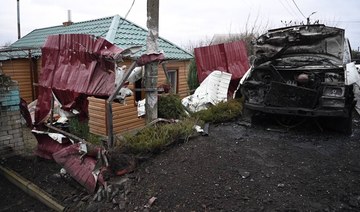DELHI: The northeastern state of Assam is enduring violent protests, a day after the Indian parliament passed the controversial Citizenship Amendment Bill (CAB), that makes religion the basis of granting Indian citizenship.
Despite an overnight curfew in Guwahati, the state’s biggest city, people came to the streets on Thursday demanding the bill be immediately withdrawn as it is an assault on “Assamese ethnic identity and the secular ethos of the country.”
Protests across the state started on Wednesday night, with the homes and offices of legislators from the ruling Bhartiya Janata Party and its allies being vandalized.
The state government imposed a curfew and suspended internet networks for 48 hours. Schools have been asked to remain shut for the next 10 days. Two battalions of paramilitary forces have also been called in to prevent escalation.
The Assamese fear the CAB will legitimize illegal immigrants from Bangladesh and alter the ethnic and linguistic identity of the state. Violent agitation on the issue of illegal immigrants erupted in the state in the 1980s, which ended with the Assam Accord of 1985, in which New Delhi promised to declare any Bangladeshi — Hindu or Muslim — a foreigner if they came to India after March 25, 1971.
Under the amended CAB, the new date is 2014.
“This is a spontaneous protest like in Hong Kong. The CAB is an insult to the people of the state who feel that the citizenship bill is an attempt to kill the linguistic and ethnic identity of Assam,” said Lucy Neyog, a journalist who has been protesting for the past three days.
“The bill affects the secular fabric of the nation and makes India a Hindu state which we feel is an invasion of the country’s identity,” Neyog told Arab News on Thursday.
Afrida Hussain, another protester, said “those who love Assam will oppose the CAB. Big names from all walks of life are here on the streets of Guwahati, protesting Delhi’s decision to bring in sectarian citizenship legislation.”
Assam-based public intellectual Dinesh Baishya said “the bill will only divide society, accentuate mistrust and spoil the political atmosphere in the subcontinent.”
With both houses of the parliament passing the bill, it now needs the formality of the president’s signature to become law.
The bill aims at giving citizenship to Hindu, Sikh, Christian, Buddhist and Parsi minorities — if they are persecuted in neighboring countries — but excludes Muslims.
The opposition called the bill discriminatory, seeing it as an exercise to identify illegal citizens of India in conjunction with the National Register of Citizens (NRC).
Home Minister Amit Shah last month announced that the NRC would be implemented all over India, like it was done in Assam, where 1.9 million people were found to be illegal immigrants.
Concerns are mounting that the main target of the NRC will be Muslims. If a Muslim is not be included in the NRC, they would be declared stateless, as the CAB does not grant them the protection it gives to other religious communities.
On Thursday, Kerala-based Indian Union Muslim League filed a petition with the Supreme Court challenging the bill.
As the bill was passed on Wednesday, Indian Prime Minister Narendra Modi said it was “a landmark day” and that “the bill will alleviate the sufferings of the many who faced persecution for years.”
He told the Assamese that “they have nothing to worry about the passage of the CAB,” as no one can take away their “rights, unique identity and beautiful culture.”
The main opposition Congress Party called the passage of the bill “a dark day in India’s constitutional history.”
Congress Party President Sonia Gandhi said on Wednesday night: “Today marks a dark day in the constitutional history of India. The passage of the CAB marks the victory of narrow-minded and bigoted forces over India’s pluralism.
“The bill fundamentally challenges the idea of India that the forefathers fought for and, in its place, creates a disturbed, distorted and divided India where religion will become a determinant of nationhood.”
Amnesty International condemned the bill as “bigoted.”
Avinash Kumar, executive director of Amnesty India, said: “In a secular country like India, slamming the door on persecuted Muslims and other communities merely for their faith reeks of fear-mongering and bigotry.”
Kumar added that the bill “runs absolutely foul of India’s international obligations under the Universal Declaration of Human Rights and the International Covenant on Civil and Political Rights.”

























